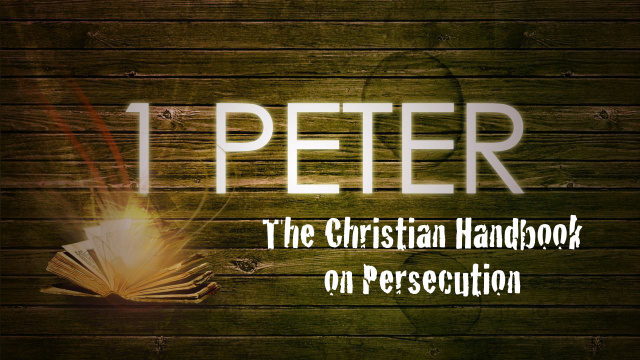 It is believed that Peter wrote his first epistle from Rome around 64 AD. The persecution his readers were suffering was at the hands of the Roman Emperor Nero. Some scholars argue that Peter penned his epistle on the precipice of Nero’s persecution, while others argue that he penned it in the initial throes of it. Those who argue Peter penned it on the precipice of Nero’s persecution point to 1 Peter 2:17 as a proof text for their position. According to them, it was still possible for Peter’s readers to “honor the king” at the time the epistle was written. Of course, this insinuates that it would not have been possible if Nero’s pitiless persecution had already commenced.
It is believed that Peter wrote his first epistle from Rome around 64 AD. The persecution his readers were suffering was at the hands of the Roman Emperor Nero. Some scholars argue that Peter penned his epistle on the precipice of Nero’s persecution, while others argue that he penned it in the initial throes of it. Those who argue Peter penned it on the precipice of Nero’s persecution point to 1 Peter 2:17 as a proof text for their position. According to them, it was still possible for Peter’s readers to “honor the king” at the time the epistle was written. Of course, this insinuates that it would not have been possible if Nero’s pitiless persecution had already commenced.
This raises a serious question for America’s contemporary Christians. When does patriotism become impossible under persecution? If Christian America, to which we once pledged allegiance, is no more, and current America has become antichrist, can we still salute the flag and sing the Star-Spangled Banner? What loyalty do we owe our country once it turns its sights on Christ our Lord?
While the Bible clearly instructs us to submit to government authority and to obey the laws of our land, as long as we can do so in submission to God and in obedience to His higher laws, we are not Biblically obligated to bow to a blasphemous government whose laws are contradictory to God’s commands. Much to the chagrin of America’s contemporary Christians, we’re nearing this line of contention in this country. I’m afraid we’ll soon find ourselves forced to choose between faithfulness to Christ or waving our country’s flag.
While we’ve always equated patriotism with Christianity in a Christian America, patriotism will become antithetical to Christianity in an antichrist America. Our heavenly citizenship will crash with our earthly citizenship once our country becomes the chief nemesis of our Christian Faith. How can Christians pledge allegiance to a country that prohibits them from professing and practicing their Christians Faith, as well as from preaching Christ to their fellow countrymen?
Truly, if the Christian’s divinely inspired handbook on persecution, 1 Peter, has ever been needed, it is today. Let us prayerfully peruse it to find answers to the important questions being posed by our present and precarious predicament, in a land that has gone from being the protector of our faith to becoming the persecutor of our faith.

